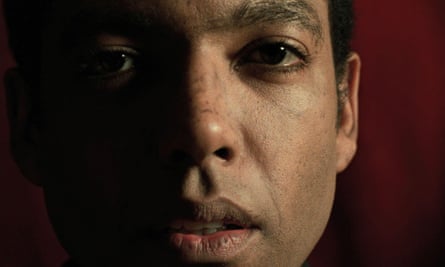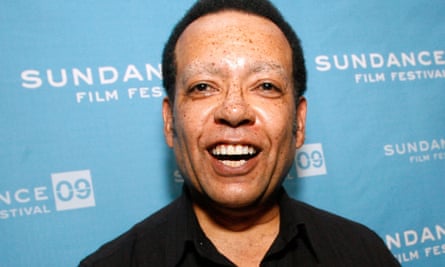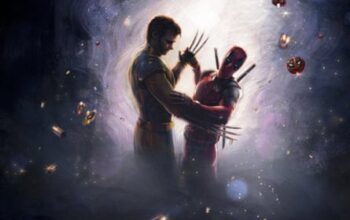W
When Wendell B Harris Jr received the grand jury prize at the Sundance film festival in 1990 for his first movie, Chameleon Street, he believed it would be successful. He recalls thinking that Hollywood was interested in him. However, despite the recognition, Chameleon Street faced challenges in finding a distributor. Unfortunately, Harris did not go on to make any more films.
After thirty years, there have been some changes. Chameleon Street, which has been recognized as a masterpiece by the New Yorker and one of the best independent films of the 20th century, was finally released for streaming in the US in 2021. It is now also available for the first time in the UK through Mubi and BFI Player. This is a significant opportunity for Harris, as his thought-provoking comedy about race in America may finally reach a wider audience. According to him, he has spent three decades struggling to get Chameleon Street distributed, but ultimately, he has not been successful.
In the summer of 1985, the idea for the film was born. Harris, a new graduate from Juilliard School’s drama program, came across a news story in his hometown of Detroit about a man named William Douglas Street who had been arrested for serial identity fraud. Harris explains via Zoom from Detroit that this discovery solved two major issues for him. Firstly, as an actor, he was searching for a substantial lead role. And secondly, Street’s story was the perfect way to expose the racial dynamics in America.
During the 1970s and 80s, Street used deceit to obtain various positions such as a human rights lawyer, Yale student, journalist, basketball player, and even a surgeon who completed an astonishing 36 successful hysterectomies. Harris conducted extensive interviews with Street while he was in prison. According to Harris, “I had something he desired, and he had something I desired.” What did Street desire? Increased fame.
Harris dedicated four years to securing funding for the film, which he compares to the difficult task of scraping dried blood off the sidewalk with a butterknife. After finally gathering the $1.5 million budget, with a majority of it coming from black investors including his own family, Harris took on multiple roles in the production – writing, directing, editing, and acting in the film.
Chameleon Street, which premiered at the Toronto film festival in 1989, radically framed Street as an autodidact antihero, a sardonic and informed citizen using assumed identities to exact his revenge on a rigged and racist society. As the film’s tagline posits: “I think therefore I scam.” The film’s motor is Harris’s rich, deadpan orotundity – redolent of Orson Welles, Harris’s hero – and a shockingly funny script tightened during the film’s long gestation.
The entire narrative is narrated solely from Street’s perspective. The director explains that he was not inclined towards the current trend of amplifying the voices of victims. Harris states, “The individuals who have encountered Doug in their lives are left feeling devastated because he is unable to fulfill his roles as a husband, father, or friend.” Harris has received ongoing communication from Street’s victims who are outraged by the film’s portrayal of him as a heroic figure, despite the harm he caused in their lives. How does Harris react to this? He takes a moment before responding, “I always addressed their concerns.”

Display the image in full screen mode.
Following his success at Sundance, Harris did eventually move to Hollywood. However, many years went by with no progress as numerous meetings yielded no results. The film was unable to secure a distributor and was only shown in a few theaters in 1994. Harris then sold the rights for a remake, causing Chameleon Street to become even more distant from the big screen. In the years following, Hollywood released films such as The Talented Mr. Ripley (1999) and Catch Me If You Can (2002), which presented more digestible tales of con artists with white leads.
Harris states that his film, Chameleon Street, is risky in various ways and should not be compared to an Adam Sandler movie. The movie portrays how white America can be taken advantage of. Harris clarifies that the mindset portrayed in the film is not one of submission, but rather one of conquering and even being better than a flawed system and racism.
Harris believes that these structures ultimately hindered him, preventing the release of his film. Despite the current situation, Harris acknowledges the performance of his co-star Angela Leslie, who portrayed Street’s wife Gabrielle. According to Harris, Leslie’s career was “ruined” by Bill Cosby. In 2014, Leslie came forward with allegations of sexual assault against Cosby in a Las Vegas hotel room, and Harris’s film remains her only credited role.
Ignore the advertisement for the newsletter.
after newsletter promotion

Display the image in full-screen mode.
There was nearly a second film by Harris called “Negropolis,” a comedic epic that takes place in ancient Rome with black rulers and white slaves. Harris shared, “I pitched the idea, but the white executives reacted as if I had made a mess on their carpet.” He also reveals that Spike Lee was initially set to direct the film, but ultimately withdrew from negotiations.
Harris ultimately went back to Michigan. During the 1990s, there was a widespread joke in Hollywood that making a film only required being a black man who was not Wendell Harris. Did this experience have a psychological impact on him? Harris takes a moment before responding. He acknowledges that it did have an effect, but the financial consequences were even more significant. Harris had to confront the fact that his family and investors had lost their money, which was a huge burden.
The DVD release of Chameleon Street in 2007 was not successful in gaining a wide audience, but it did gain a devoted following. In 2021, Arbelos Films restored the film in 4K under the supervision of Harris. The Black Lives Matter movement highlighted the film’s themes of code-switching, passing, and confirmation bias. Despite this, Street continued to cause controversy: in 2016, he was arrested for posing as a military veteran.
Currently, Harris is working on a new film titled Yeshua Vs Frankenstein in 3D, which is a documentary that incorporates the ideas of philosopher Theodor Adorno to illustrate how media has been utilized to manipulate society throughout history, from “Michelangelo to Michael Jackson.” According to Harris, Adorno and the Frankfurt School predicted that it would take 70 years for America to decay like a decomposing body. Whether or not this stench can be sensed from your location, there is currently a strong and unpleasant odor permeating America.
Harris is glad about the recent change in the film’s luck, but also recognizes potential challenges. He explains, “When Chameleon Street is labeled as an art house or cult film, that’s basically a way of saying there’s no money to be made.” Despite the glowing reviews for Chameleon Street, Harris points out that even with a small increase in profits, he still wouldn’t be able to afford a cup of coffee. After thirty-five years, Chameleon Street continues to be a highly-regarded work, with its creator’s foresight shining through as a lonely masterpiece.
Source: theguardian.com


